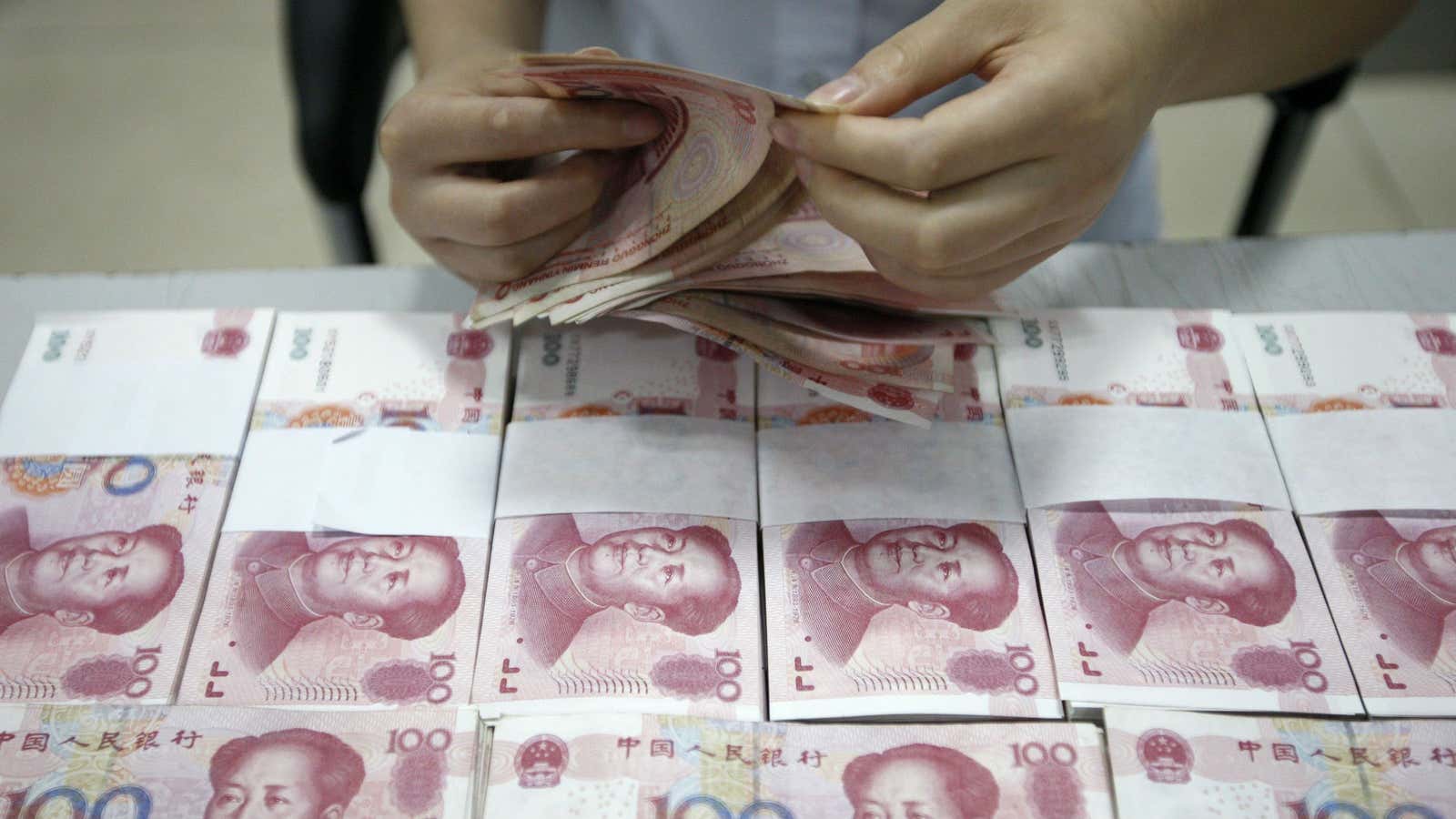After pushing Chinese technology stocks into ominous bubble territory, mainland Chinese investors have now turned to Hong Kong. H shares, as Hong Kong stocks are known, have soared this week, with the benchmark Hang Seng Index up 3.8% by midday Thursday, its highest level in seven years. Trading volume hit a record HK$252.4 billion ($32 billion) on Wednesday.
Chinese investors are pouring into Hong Kong through a stock connect program that allows Hong Kong and mainland investors to invest in each others’ markets. The crucial change came last month, when officials decided to let mainland mutual funds participate in the program, which was previously limited to wealthy retail investors.
The result has been a massive influx of investment into Hong Kong. The 10.5 billion yuan ($1.69 billion) daily quota for mainland investment in Hong Kong was exhausted yesterday for the first time since the scheme was launched in November. Chinese regulators are actively touting the connect program: the government-run China Securities Journal published an article today headlined, “Go! Buy Hong Kong stocks!”
“The party has begun, and you can feel the excitement today,” Chen Zhizhong, an analyst at China Merchant Securities told Reuters. ”It’s hard to say when the music will stop.”
But there are signs that this won’t end well. Chinese mutual funds are dominated by the country’s infamously short-term focused mom and pop investors, many of whom didn’t finish high school and get their stock tips from hawkers in local parks. It’s hard for middle class investors to make much money, especially now that the real estate market is on the decline, and the stock market is one of their few options.
It’s not surprising, then, that investors in China’s 5 trillion yuan (about $800 billion) mutual fund sector would turn their pent-up energy toward Hong Kong. Moreover, Hong Kong stocks are a relative bargain. The average mainland tech stock’s price-to-earnings ratio is 41% higher than that of the US tech companies in 2000, according to Bloomberg. Until this week, mainland blue chip stocks were about one-third more expensive than their Hong Kong peers.
Similar scenarios have ended badly before. As the Wall Street Journal points out, “If mainland China’s momentum style of investing spreads to Hong Kong, many shares may become untethered from fundamentals.” Ahead of another stock connect program in 2007, Hong Kong stocks also rallied and fueled a bubble that eventually crashed—a decline the city still hasn’t recovered from.
The frenzy might only increase. HSBC said in a note that it expects regulators to remove a 500,000 yuan stock account minimum balance requirement, which would open the stock connect program to even more retail investors. And yesterday, the chairman of the Hong Kong Exchanges said there is room for raising the daily quota for mainland investors.
